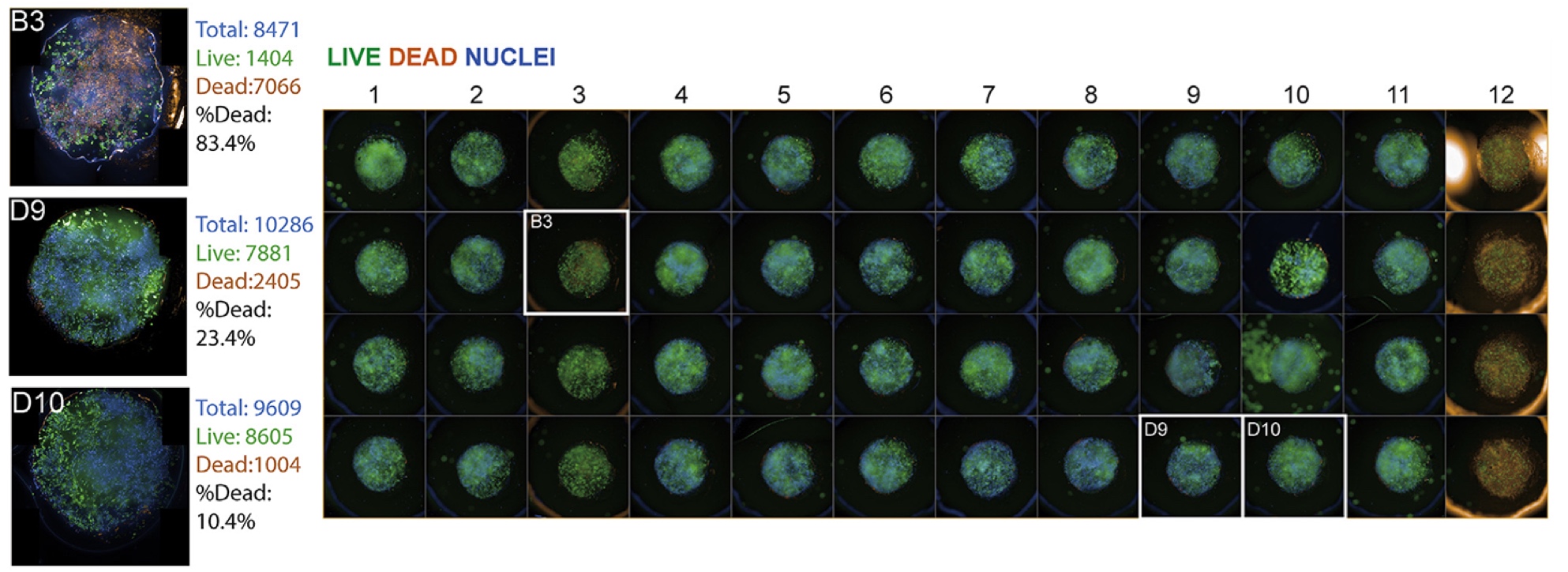2018-05-03
Our work "High throughput scaffold-based 3D micro-tumor array for efficient drug screening and chemosensitivity testing" has been accepted by Biomaterials. Congratulations to the authors!

Oncology drug development is greatly hampered by inefficient drug screening using 2D culture. Herein, we present ready-to-use micro-scaffolds in 384-well format to generate uniform 3D micro-tumor array (3D-MTA, CV < 0.15) that predicts in vivo drug responses more accurately than 2D monolayer. 3D-MTA generated from both cell lines and primary cells achieved high screen quality (Z' > 0.5), and were compatible with standard high throughput and high content instruments. Doxorubicin identified by 3D-MTA and 2D successfully inhibited tumor growth in mice bearing lung cancer cell line (H226) xenografts, but not gemcitabine and vinorelbine, which were selected solely by 2D. Resistance towards targeted therapy was modeled on 3D-MTA, which elicited SK-BR-3 to express higher proliferation-related genes in response to gefitinb, as compared to 2D. Screening of 56 MAPK inhibitors identified pisamertib to synergistically improve cytotoxicity effect in combination with gefitinib. Primary tumor cells derived from patient-derived xenografts further attested concordance of drug response in 3D-MTA with in vivo response. 3D-MTA was further extended to realize chemosensitivity testing using patient-derived cells. Overall, 3D-MTA demonstrated strong potential to accelerate drug discovery and improve cancer treatment by providing efficient drug screening.

